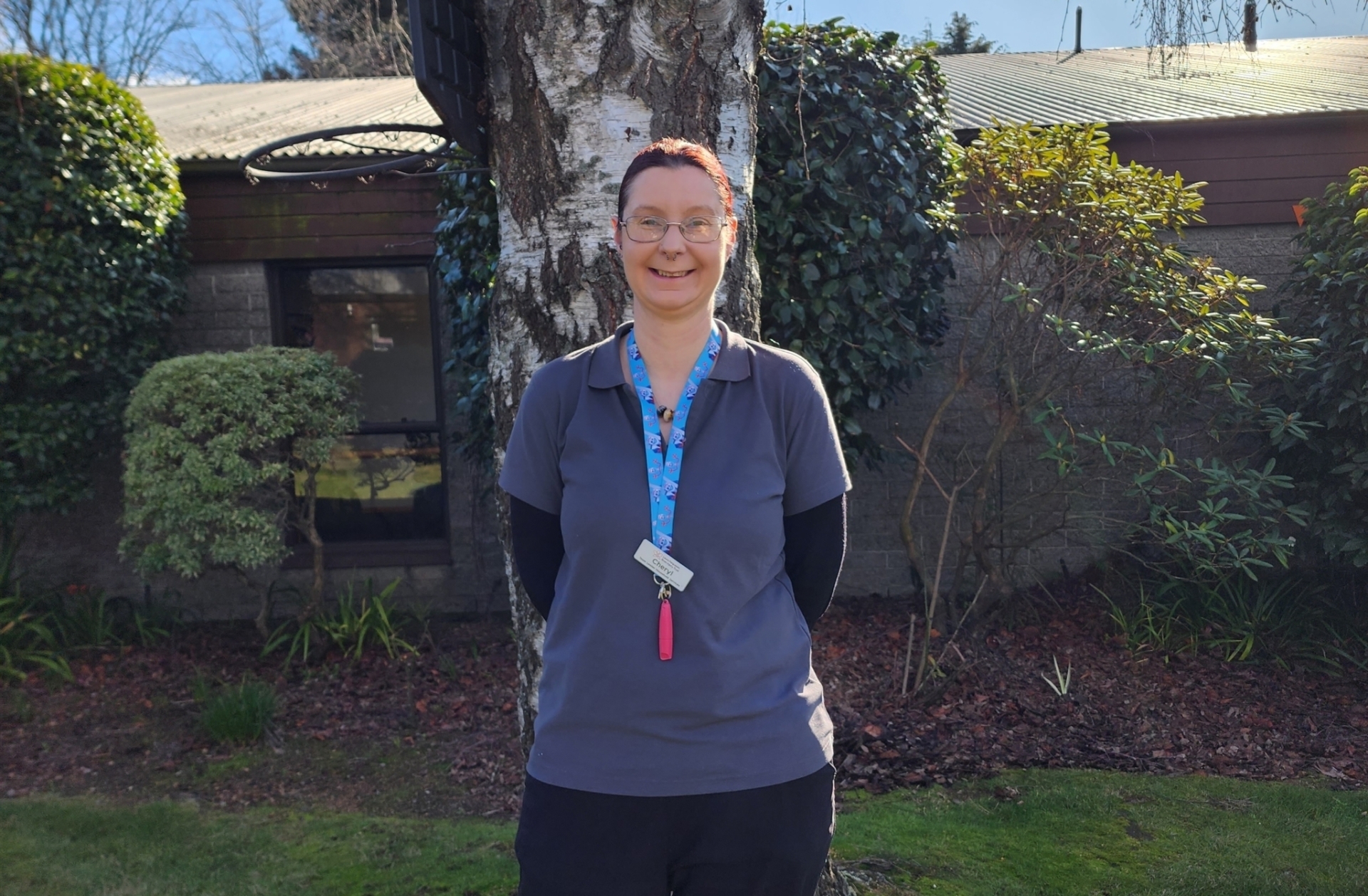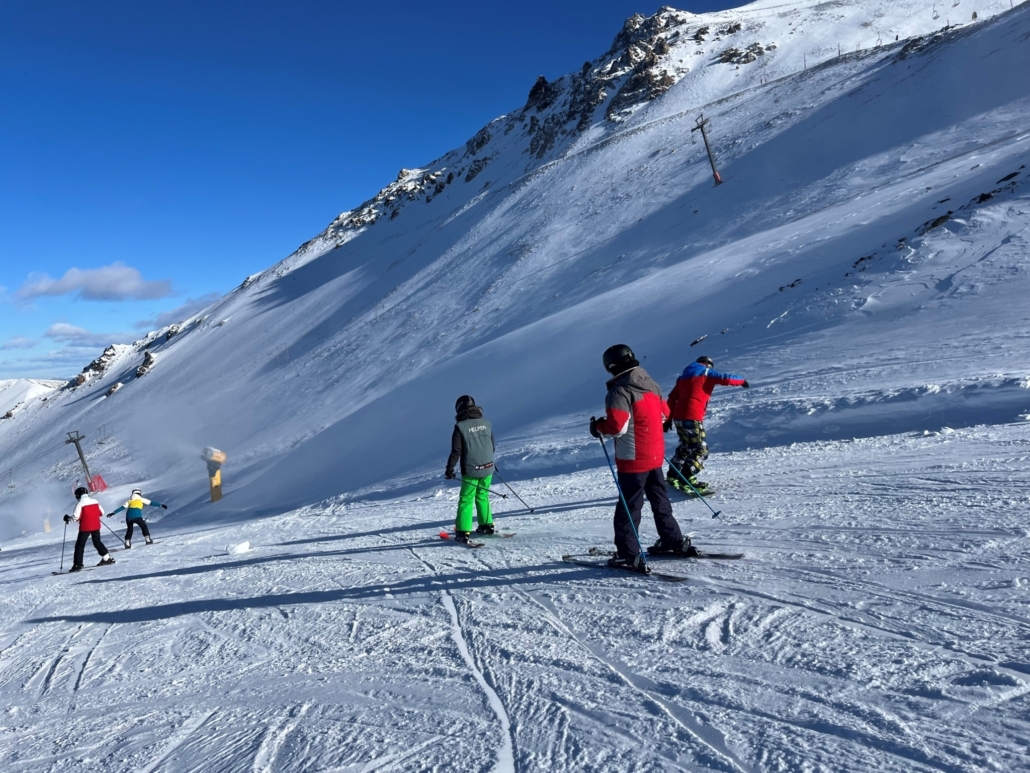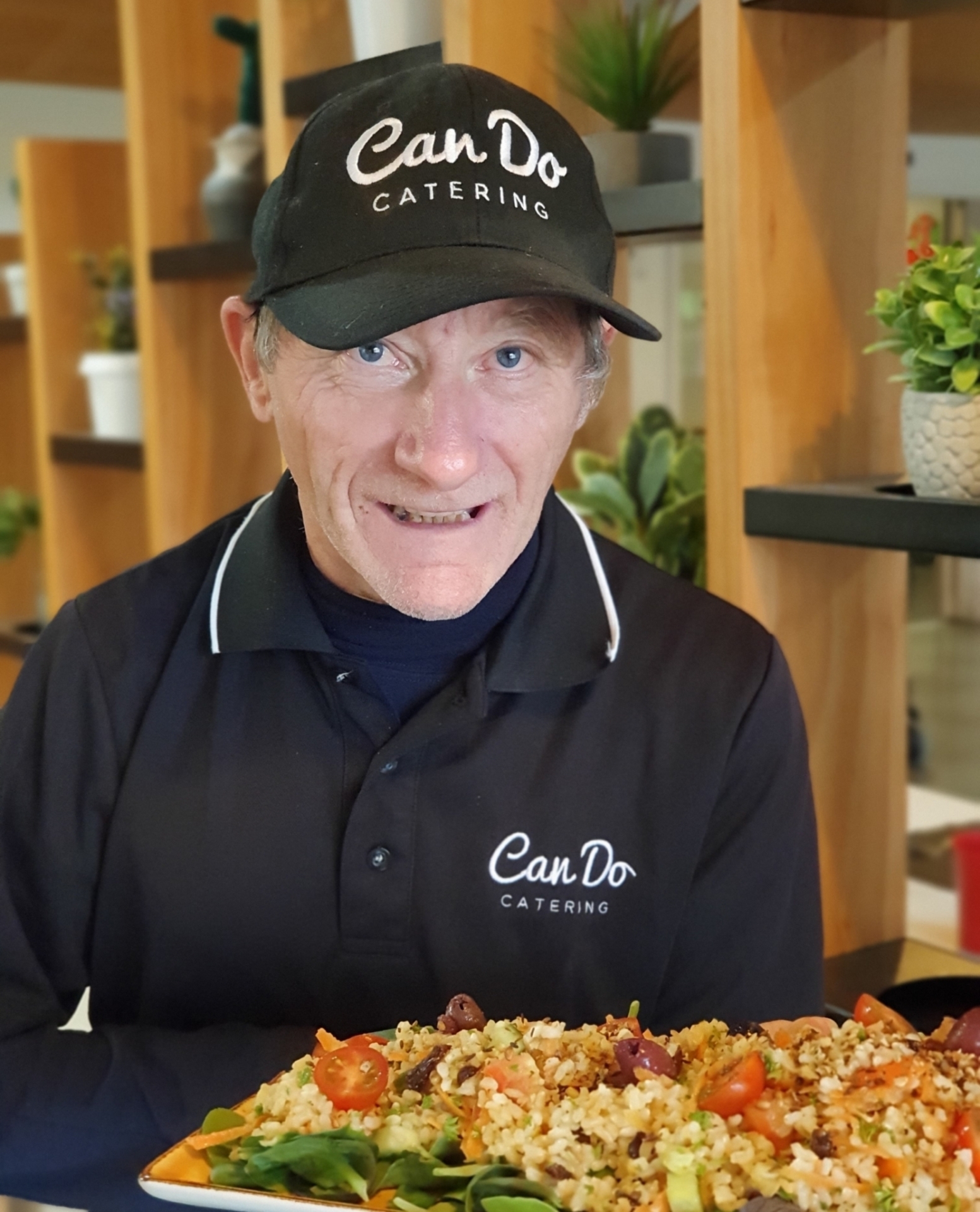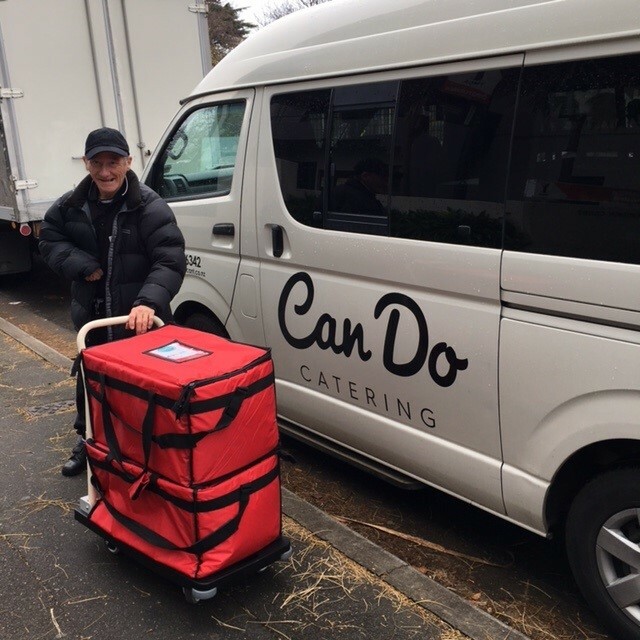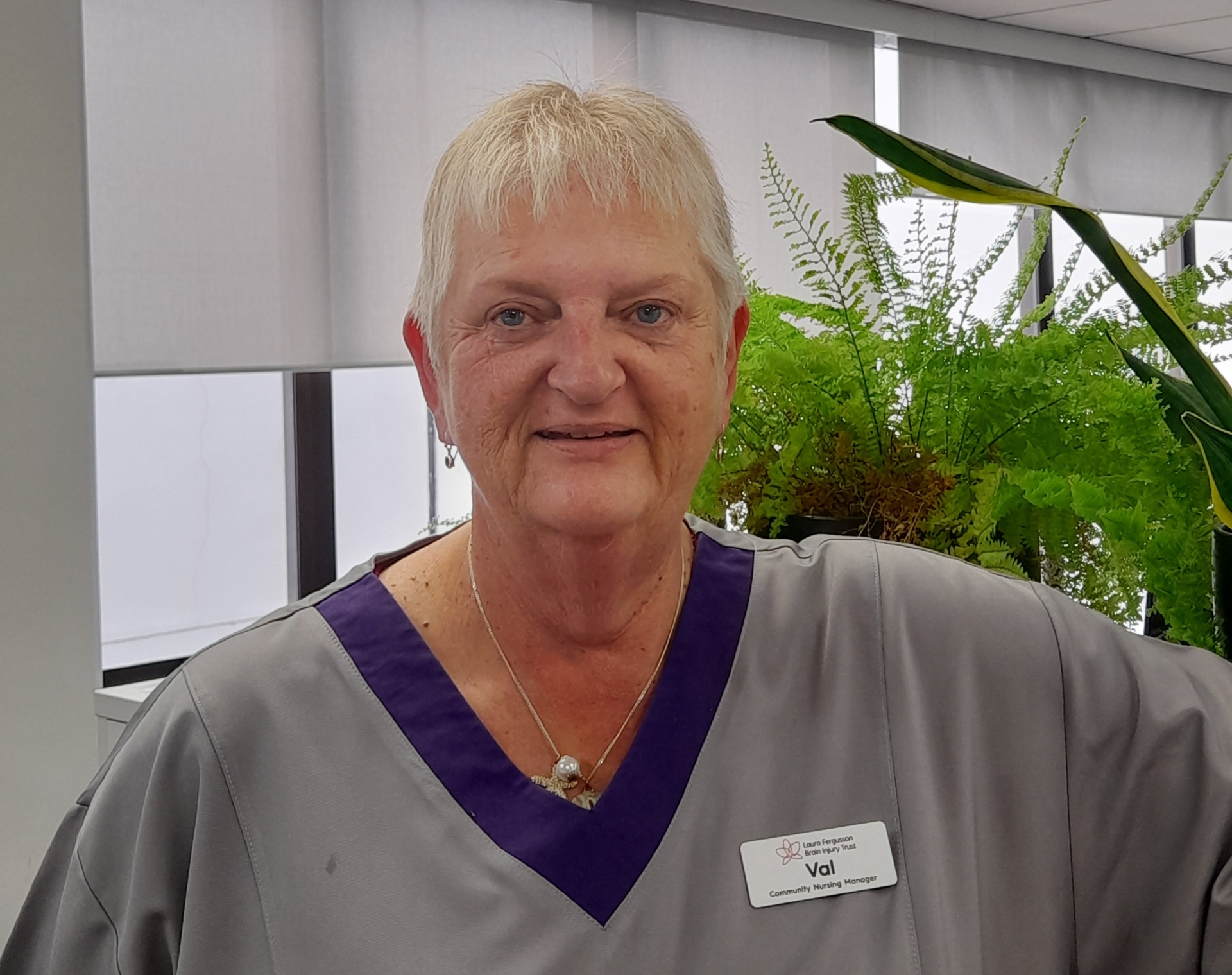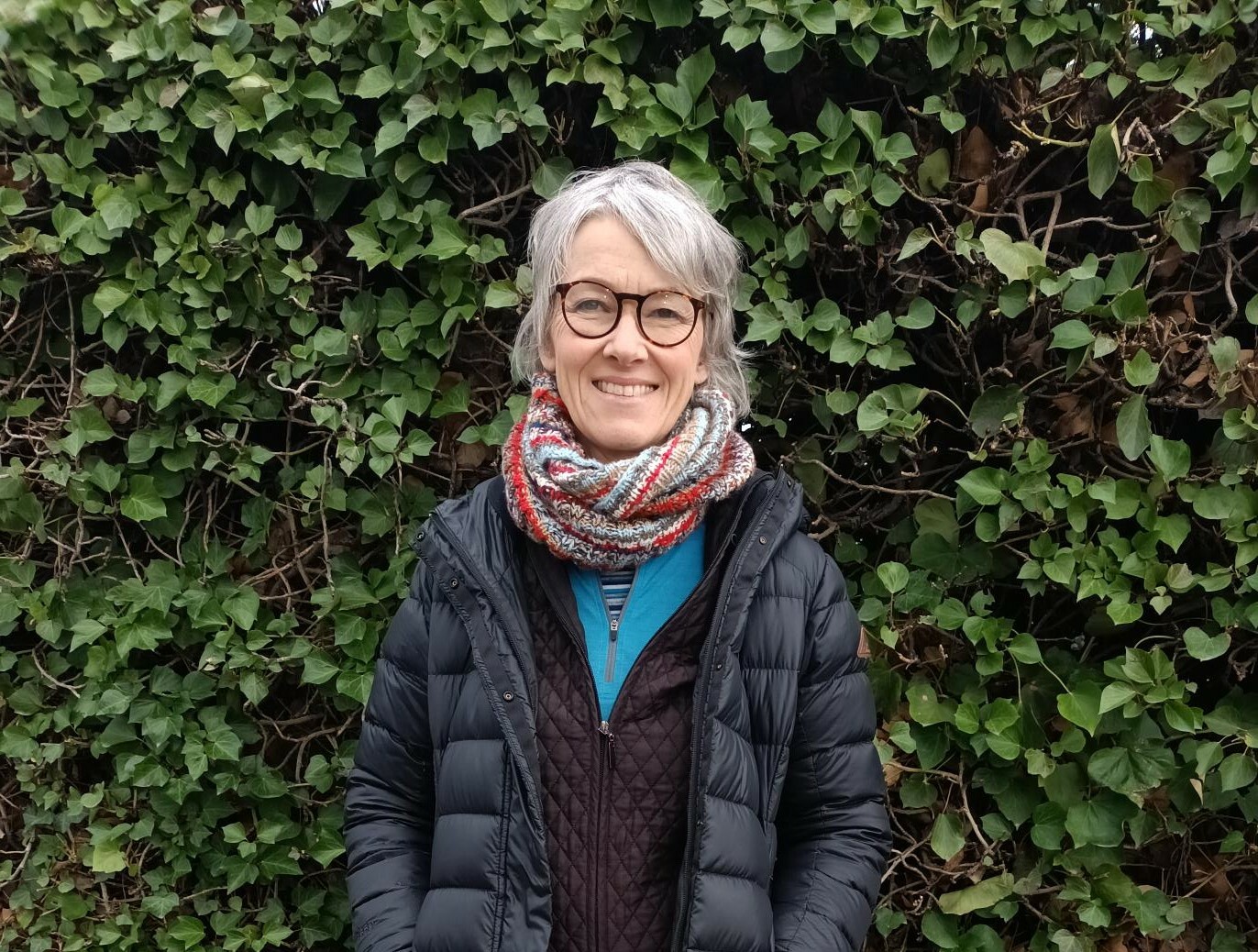Today we are fortunate enough to hear from some of the unsung heroes of the Laura Fergusson Brain Injury Trust, a group from our incredible team of support workers!
We spoke with Gabriela, Kieran, Keeley, Maninderjeet, Lamia, and Hafsa, about their roles as support workers, what they enjoy about working at LFBIT, and what motivates them to succeed.
What do you do as a support worker?
Gabriela: Each resident has their own routine here. Some of them have been here for quite a long time, and others are quite new, a couple of weeks or months. We will go through their routine with them, e.g. in the morning shift we help them prepare for the start of their day, help them get up, have their showers and have breakfast. So, we help with things that may be simple for some people, but for those who have certain disabilities, it can be quite a challenge.
Kieran: We have a pretty even mix of responsibilities, like healthcare workers – maintaining the residents’ physical health, working with the nurses, and supporting them with their care and daily activities. We also provide support for things that families would traditionally do, like taking clients out to go shopping; if they are running out of a clothing item; we help them make phone calls; we help book appointments; we take them to and often participate in entertainment. We often go off-site for activities as well, some clients play sports, and we go with them. It is about enabling them to maintain their physical and mental wellbeing.
Keeley: We work with a variety of individuals, and help to enable them to participate in meaningful activities in their community. We help with daily personal care, and plan goals around specific aspects of their lives and wellbeing, all to help them achieve maximum independence. When we come to work, it’s our job to adjust to their way of life, rather than bringing our own.
Maninderjeet: We are here to help the residents. I like to make their world beautiful. That can be in any way, just in their daily routines, to go out and about and help in any way possible.
Hafsa: Our main purpose is to be an advocate for the residents who live here, being the extension between them, their everyday life, their families, and other allied health professionals. This is especially important for those who can’t speak up for themselves. Also, some residents see us more than they see their own family, they see us on a weekly or daily basis. So just being that kind of emotional support for them, if they want to vent, we are there, as well as our overall care for them.
Lamia: I feel the whole team are our family, and we do care for them, and support them emotionally, and physically – their wants, their needs, everything. Even their day-to-day life, and relationships with their family who they can’t contact themselves, it’s a bond between us that holds us together.
What do you enjoy about working at LFBIT?
Maninderjeet: I enjoy working here. I get a sense of satisfaction when I help the residents, I feel like I’m helping my grandparents or my parents – this is the most important thing. And the staff here are really good, they’re cooperative and work well together. And our team leader, Greenville, helps us with everything. He is the best!
Keeley: I love hanging out with the residents. I love making new connections with them. I’m just able to engage with them on a daily basis and knowing how they just trust me a lot is really nice.
Kieran: Working with the clients is what I enjoy most. It feels like helping a family member. We build strong relationships with a lot of the clients on an individual basis. Some of our clients have real wicked senses of humour, and they’re great to have a laugh with. Being able to do a job where you’re actually making a tangible and immediate difference in someone’s wellbeing is really nice.
I also quite like the diversity of what we get to do. I have ADHD, I get way too bored doing the same thing over and over again. So, having a wide range of different tasks that change daily is enjoyable for me. Also, being in the LGBTQIA+ community, I am transgender and my last workplace was not always respectful of that. So, coming here on my first day the team leader at the time immediately said, “No, any hate will not be tolerated. That’s not going to be a regular thing.” We’ve got so much diversity and so many queer people, neurodivergent people, and people from different countries, that it really makes for quite a supportive environment. You don’t feel ostracized for any little differences that you have.
Gabriella: What brings me joy is helping the residents with their daily care and life and helping them achieve their goals.
Hafsa: I think for me I do like the environment. It is quite cozy and homey. Each room is individualized to what the resident likes. Everybody comes down and has dinner together. They do activities together. So, it’s not an isolated place, it very much brings this togetherness. And that is what draws me to it.
Lamia: For me, the inclusiveness of this place is really attractive to me. I admire the culture of diversity. Also, we work well as a team, it is very collaborative. And the residents are each other’s friends and family – they have their dinner, lunch and everything together. The other great thing is the team leaders; they support us a lot – we feel safe and secure, and the environment is really home-like for me.
What motivates you to succeed?
Kieran: Simple answer, the first thing that comes to mind is the clients. The fact that our work has an immediate difference in someone’s quality of life is very motivating. Our primary goal isn’t to sit at a desk and make someone richer. It’s going out, meeting and helping people who are in vulnerable positions. And we get to make their day a little bit better, to keep them healthier, safer and happier. That’s something that we get to do every day, which is really cool.
Keeley: What motivates me is my desire to help these residents, and have a laugh with them. Working here, it’s made me now want to get into registered nursing. So, I have started my pre-health, and then I’ll roll into registered nursing. There’s lots of opportunity to grow here. Being able to watch everyone, and work with nurses and physiotherapists, is all very interesting. You can find what you want to do through this role.
Gabriella: When I started I was really motivated because my background back home was in nursing. So, moving here, I needed to understand what it is like in New Zealand which was quite a challenge. But, I was open to entering this challenge, gaining new skills and improving my English. That’s what’s kept me motivated, as well as helping the clients achieve quality of life.
Maninderjeet: I’m from a different country, English is not my first language, and my communication skills have improved a lot. My previous job was as a machine operator. So this job is quite different and has increased my interest in healthcare. So, just like Keeley, I’m hoping to get into nursing after another one or two years. Having this goal helps me to bring more confidence to do the job.
Lamia: From my childhood, I wanted to devote myself to the healthcare system. The way we were brought up in our family was that we cared for each other. So, I always wanted to become a healthcare professional. Now I’m here, I care for the residents, but they also care for us. If we see them, they will ask us when our shifts are, they are hoping to see us. They motivate us in our work life.
Hafsa: For me, I come from a psychology background. As I was studying, I wanted some kind of work experience under my belt so that when I finish my degree, I already have brain injury experience under my belt. As well as this, there are some themes that I think you can take away from your workplace and apply to your everyday life – these are things like the humbleness you learn when working in a place like this, the constant compassion, and learning active listening as well. So, there are characteristics that can better you as a human being. I genuinely feel like working in this environment will build your patience, your humbleness, your compassion, and those initial characteristics will make you succeed, even after you leave the workplace.
A huge thank you to everyone on the team for sharing their work and experiences. And a huge thank you to everyone who works tirelessly behind the scenes to make life better for our residents.
Grenville Matijevich, team leader of everyone here, shared his thoughts with us on his team.
“At LFBIT, we are privileged to have a diverse range of support workers. In our current society, we have become more diverse – Laura Fergusson Brain Injury Trust is in a fortunate position to reflect this change. This will only enhance the level of care our clients receive. Our support workers are our strength. Maintaining their wellbeing should be a high priority. I would like to thank each of you for the dedication and commitment that you bring to the table. When we all work together, we support each other, it makes the job way easier. And for me, that’s success.”



